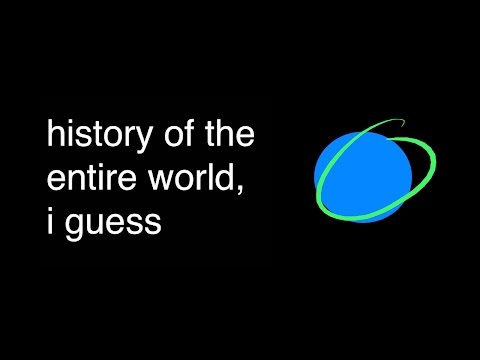from reddit /TIL: #TIL a family in Georgia claimed to have passed down a song in an unknown language from the time of their enslavement; scientists identified the song as a genuine West African funeral song in the Mende language that had survived multiple transmissions from mother to daughter over multiple centuries
🤨🤔🧐🧐🧐
But…but how…how did they think ancient stories were passed down before paper was invented? Did they think cave paintings were just ancient emojis? I’m truly baffled right now.
@ScribblerRVA @_L1vY_ chile...the reference they used was reading "Roots"
their term = "bullshit" until they learned otherwise
🤦🏾♂️🤦🏾♂️🤦🏾♂️jaaaaaheeeezuuuuuuus🙄😑”I read Roots” is the apparently the 21st century version of “I have a Black friend”. Alex Haley created a monster!🤦🏾♂️🤦🏾♂️🤦🏾♂️
@eschaton @ScribblerRVA @jentrification @_L1vY_
More ppl clearly need to see Bill Wurtz's EPIC "History of the Entire World, I Guess"
my brain got a whole upgraded data set on how long China-as-China, and way more context for India and the middle East, from that 20 minute video. (terrific way to uncover knowledge gaps you want to fill in!)
But - anthropology needs to try harder to understand oral-history societies. We're missing out.

history of the entire world, i guess
That’s why fundamentalist Christians think the Universe is 6000 years old. That’s (approximately) when writing was invented. (In the {relative} West)
 (also first time I read this I thought it meant the other Georgia, and was confused)
(also first time I read this I thought it meant the other Georgia, and was confused)They win the ultimate game of telephone.
@VaylLarkinPoet yes! we miss the little things bit. even recipes (the base) are passed down yet updated with available foods.
they talk about this a lot on High On the Hog on Netflix.
That's so cool!
The resilience is amazing!
Thank You, this is a beautiful and very impressive story, which I will share with some #MusicHistory friends, who are specifically researching musical traditions in Africa as part of #WorldCulture…
@jentrification What an amazing--and amazingly rare (?)--opportunity for historical linguistics studies! Usually you can only study these changes across large groups over time and not from a single family's phonetic/phonological changes. I wonder where else there are similar examples. Maybe small Appalachian communities? neat
Thank you so much for sharing this. Best wishes from Taiwan.
This is such a moving story. It brings up so many feelings. The rage and grief of the reality of what the slave trade did to people and families, the power of music over centuries and the amazing outcome of reuniting a family torn apart centuries ago. It would be a powerful movie.
@jentrification Wow…I’m overcome with so many emotions reading this article and listening to the audio clips.
Beautiful - thank you for sharing.
Thank you for sharing this remarkable finding!
